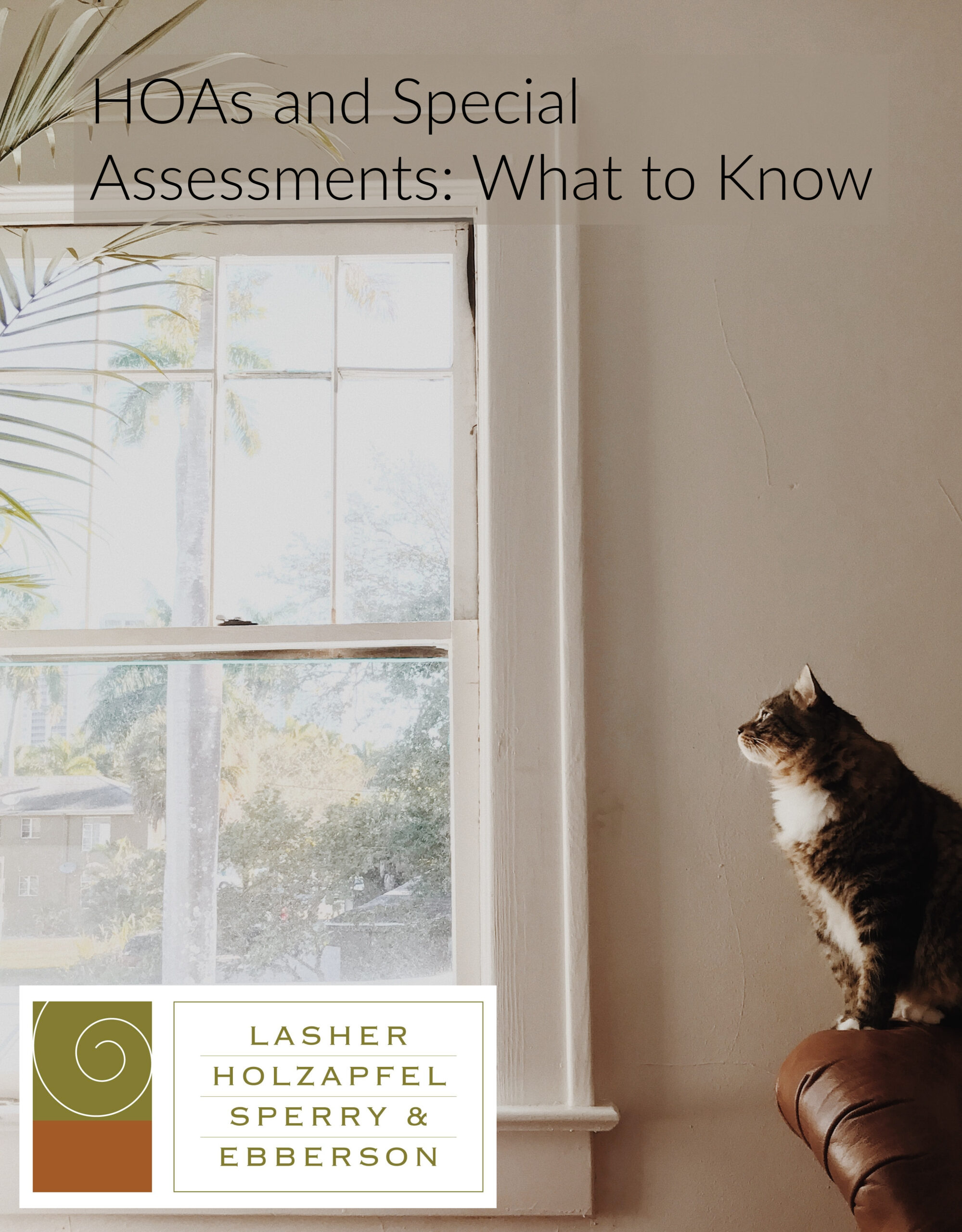HOAs and Special Assessments: What to Know

Posted on January 29, 2023 by Kelly Rutledge
If you have considered living in or currently live in a community with a homeowners’ association (commonly referred to as an HOA) such as a condominium or complex of townhomes, you have likely heard of special assessments. Generally, special assessments are what an HOA charges over and above regular periodic assessments that cover the routine expenses of managing the association, common elements, and otherwise. Special assessments can also be used to build/replenish a reserve fund managed by an HOA to cover large expenditures such as roof/siding replacement, repainting, window replacements, and other necessary items. Unless the HOA is exempt, Reserve Studies are a statutory requirement and can help determine the amount of money that should be held in a reserve fund and the timing thereof. In some circumstances, like when an HOA has been run improperly or is underfunded, the need for and the amount of special assessments can be quite large – running in the tens of thousands of dollars per unit. Not only are these important considerations for an owner, but they are also important for a buyer of property subject to HOA/assessments.
In the state of Washington, condominiums and their HOAs are generally governed by statute. For example, there is RCW 64.34 (the “Condominium Act”), RCW 64.32 (the “Horizontal Property Regimes Act”), and RCW 64.90 (the “Washington Uniform Common Interest Ownership Act”). Generally, the point in time a condominium/community is created often determines which statue applies, but this is not always the case. Even though the foregoing statutes do provide some guidance for HOAs, many of the procedures and requirements for imposing special assessments, such as voting to approve, are set forth in the declaration and/or bylaws for the community.
The process for imposing a special assessment generally starts with the board of directors. The board, after consulting with appropriate parties, adopts a proposed budget and provides copies to all of the community owners. The board then schedules and calls a meeting for owners to ratify or reject the proposed special assessment budget. If the owners do not ratify the proposed budget, the prior budget typically remains in place and the special assessment fails possibly leaving the association in a financial deficit. However, some HOAs can be structured to impose special assessments merely with board approval rather than an affirmative vote by the ownership group. Reviewing the governing documents for the community is essential to knowing how special assessments can be enacted/challenged.
If the special assessment is approved and depending on the arrangements approved, special assessments can be collected as a lump sum, through installment payments, or otherwise. Some HOAs might even finance the expense and spread out the special assessment. There are advantages and disadvantages with each situation. Lump sum assessments increase the financial burdens of current owners while potentially avoiding the costs of collecting installments over time whereas a series of payments can spread out the financial pain for owners but add to the costs of administration and risks of collection that come with time. Ultimately, the association as a whole bears the risk and consequences of default if an owner fails to pay an assessment (special, regular, or otherwise).
When dealing with assessments, it is essential to follow the governing documentation and applicable statutes as an HOA and a property owner. Financial statements and meeting minutes of the association can also be insightful for an owner and prospective buyer. If you have a question about assessments or related issues, or any other aspect of condominium or community ownership, Kelly Harris and the other real property attorneys at LHSE are available to assist.

